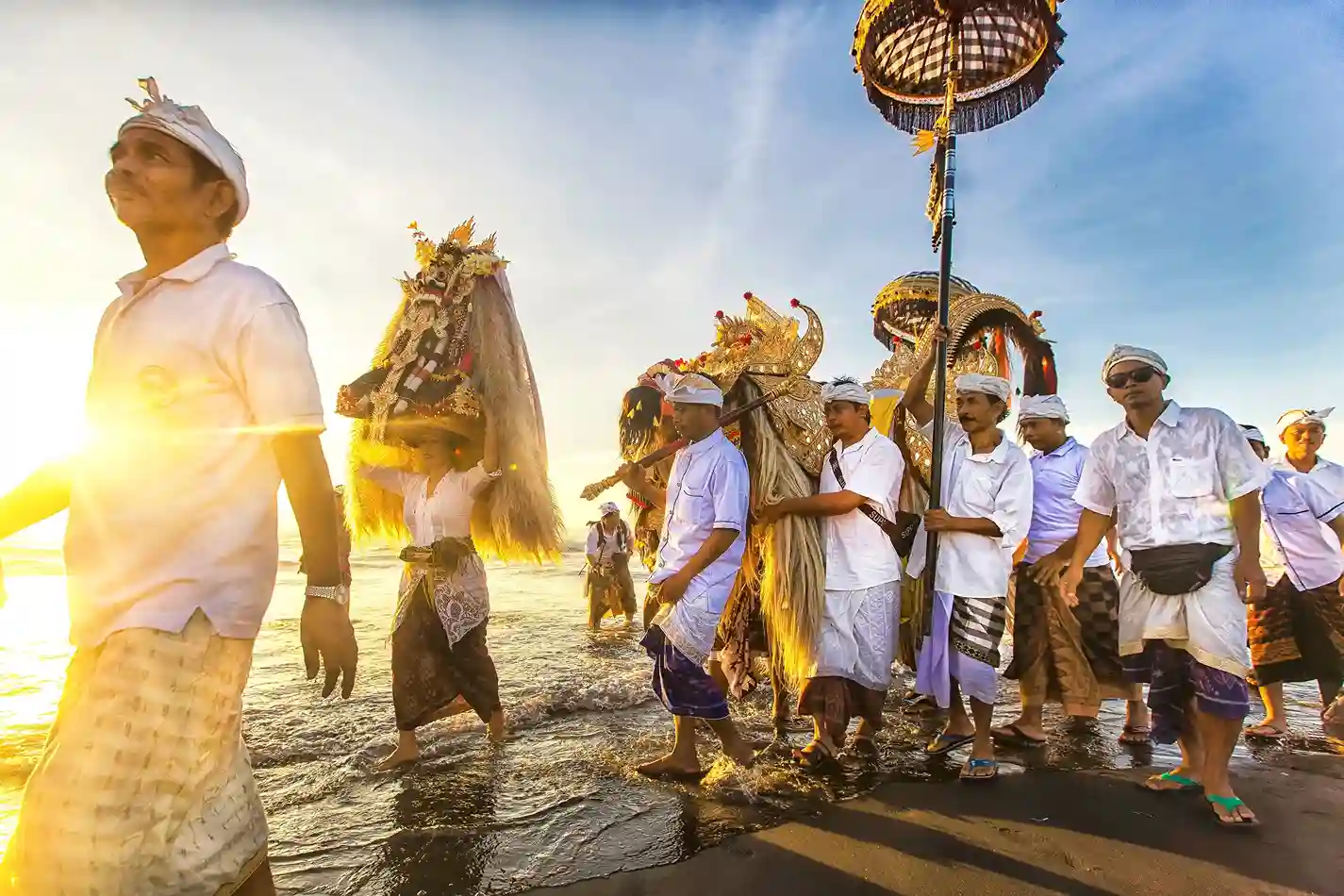Mixed Marriage in Indonesia: What You Need to Know!
oktarina
October 30, 2025
10 min read
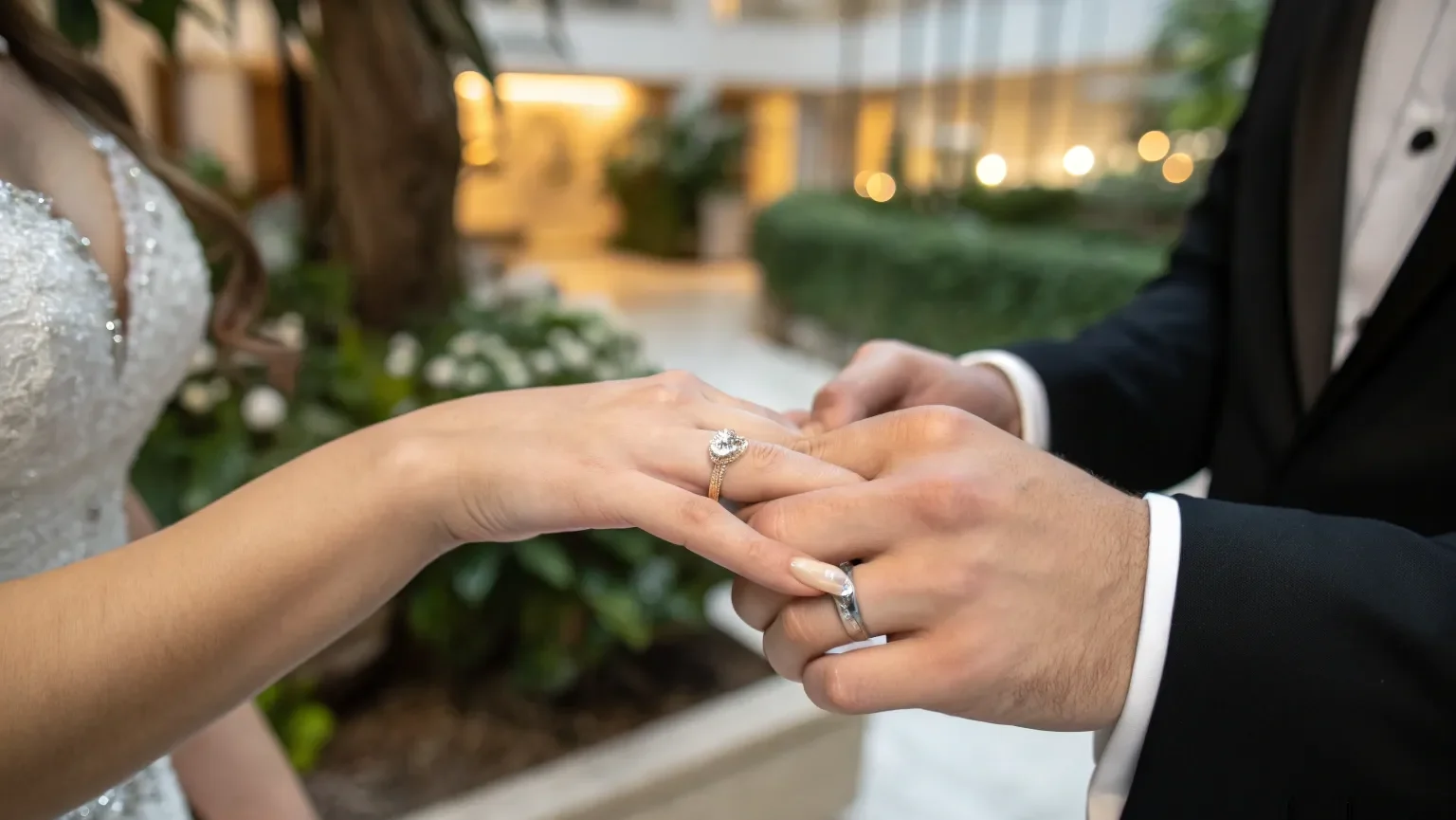
A mixed marriage in Indonesia refers to a union between two individuals from different backgrounds, including citizenship, religion, and culture. With Indonesia’s vast cultural and religious diversity, marriages between individuals from different backgrounds require a deeper understanding. Every couple deciding to go through a mixed marriage in Indonesia needs to be aware of the legal and social aspects involved.
If you are considering or planning a mixed marriage in Indonesia, this article will give you a complete guide on what you need to know. From the legal requirements, marriage registration process, to the challenges often faced by couples in a mixed marriage, keep reading for useful insights!
What is a Mixed Marriage in Indonesia?
Simply put, a mixed marriage in Indonesia is a marriage between a couple from different backgrounds, whether in terms of citizenship or religion. For example, a WNI (Indonesian Citizen) marrying a WNA (Foreign Citizen), or couples with different religions. While mixed marriages are becoming more common in Indonesia, many people are still not fully aware of the legal and cultural aspects involved.
This phenomenon is fascinating because it involves blending two different cultures, which can certainly bring its own set of challenges. Couples from different countries must understand the rules to ensure their marriage is legally recognized in Indonesia. Additionally, couples must also pay attention to other matters such as cultural, religious, and citizenship differences, which can impact their marital journey.
Moreover, couples in mixed marriages must also consider regulations regarding the citizenship of children born from such unions. Since Indonesia follows the principle of single nationality, children born from a mixed marriage may have dual citizenship, which requires further arrangements under applicable laws.
Legal Requirements for a Mixed Marriage in Indonesia
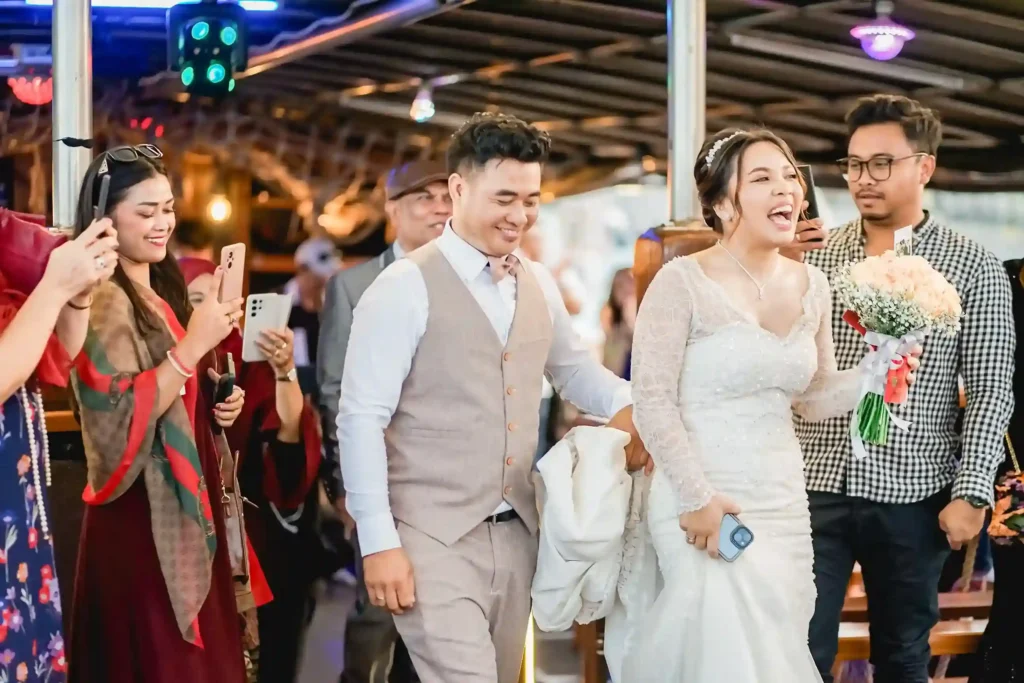
A mixed marriage in Indonesia, involving a WNI and a WNA, has several legal requirements to ensure the marriage is recognized under Indonesian law. The process includes document preparation, registration procedures, and official validation from the relevant authorities. Here are the detailed steps that you and your partner should prepare:
1. Required Documents
When planning to marry in Indonesia, there are several documents that must be prepared to ensure the marriage is legally valid and officially recorded. The required documents differ for WNI and WNA couples, as well as for couples of different religions. Here’s a complete list of documents that need to be prepared by each party.
Documents for WNI:
For the Indonesian partner, several important documents need to be prepared, including:
- KTP (Indonesian ID Card) to confirm Indonesian citizenship.
- Birth Certificate as proof of identity.
- Passport for the foreign partner marrying a WNI, along with a photocopy of the WNI’s passport (if required).
- Certificate of Single Status or Marriage Status Certificate issued by the relevant authority, such as the Civil Registry, to prove that the Indonesian partner is not married previously.
Documents for WNA:
For the foreign partner, several documents need to be prepared to ensure the marriage is legally recognized in Indonesia:
- Valid Passport as official identification for the foreign partner.
- Visa or Residence Permit in Indonesia (if the foreign partner is residing in Indonesia), along with proof of residency in their home country.
- Certificate of Single Status from the embassy or consulate of the WNA’s home country, confirming that they are not married.
- Religious Certificate indicating the religion of the foreign partner, which is necessary for registering the marriage at the appropriate religious institution (KUA for Muslims, or Civil Registry for non-Muslims).
Additional Documents:
- Marriage Permission Letter from the Embassy: The foreign partner must obtain a marriage permission letter from their home country’s embassy in Indonesia. This procedure differs by country and usually involves checking the eligibility of the marriage.
- Religious Certificate: The Muslim partner will need to provide a religious certificate from the local religious institution. For non-Muslim couples, this document is required based on the religion they follow.
2. Legal Procedures
A mixed marriage in Indonesia involves several legal procedures that must be followed to ensure the marriage is valid and properly registered. These procedures may vary depending on religion, nationality, and the couple’s status. Below are the legal steps for Muslim, non-Muslim, and foreign couples:
Marriage Registration for Muslim Couples
For Muslim couples, marriage registration is done at KUA (Kantor Urusan Agama). Here, the couple submits the required documents for verification. The registration process usually involves an interview and submission of relevant documents. Once everything is in order, the KUA will record the marriage in the Marriage Certificate (Akta Nikah) and provide the official marriage certificate.
Marriage Registration for Non-Muslim Couples
For couples of different religions or non-Muslim couples, marriage registration takes place at the Civil Registry Office. The couple must submit the required documents and register the marriage, which will then be recorded in the Marriage Certificate. Once the process is complete, the marriage is legally recognized and recorded by the state.
Procedures for Foreign Couples
Foreign nationals wishing to marry in Indonesia must ensure that their marriage is legally recognized in their home country. They need to provide documents showing that their marriage is acknowledged by the laws of their country, such as a certificate from the embassy confirming their eligibility to marry. Once these documents are in order, the marriage conducted in Indonesia will be recognized by their home country.
Additionally, foreign couples must also check the International Marriage regulations in their home country, as some countries require additional procedures before or after the marriage is performed abroad.
3. Marriage Validation:
After all the documents are complete and verified by the authorities, the marriage will receive official validation. This step is essential as it ensures the marriage is legally recognized by Indonesia. Once the marriage is acknowledged, the couple will receive the Marriage Certificate from KUA or the Marriage Certificate from the Civil Registry.
This validation also includes administrative arrangements related to citizenship, especially if the couple comes from a country with dual nationality policies. Children born from this mixed marriage will also have their citizenship status regulated by Indonesian law, which could involve considerations from the foreign partner’s home country.
Read more: Family Travel in Bali: Safety, Comfort, and Timing
Rights and Responsibilities of Couples in Mixed Marriage
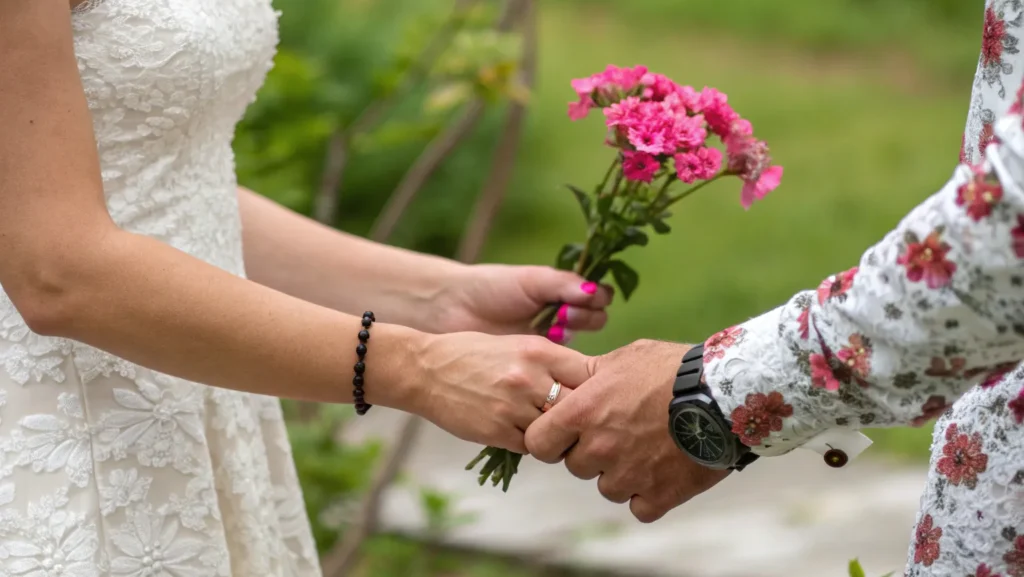
A mixed marriage comes with rights and responsibilities that both WNI and WNA partners must understand. Here are some key points to consider:
Legal Rights of the Couple:
- Inheritance Rights: Mixed marriage couples are entitled to inheritance rights according to Indonesian law, despite having different nationalities.
- Child Custody: Both WNI and WNA parents have equal rights to raise children born from the marriage.
- Property Ownership: Couples have the right to own property together or separately. Indonesian law regulates asset ownership acquired during the marriage.
Legal and Social Responsibilities:
- Administrative Obligation: Couples must report their marriage to the Civil Registry to ensure it is legally recognized in Indonesia.
- Child’s Citizenship: Children born from a mixed marriage may have dual citizenship, which needs to be clarified to avoid future legal issues.
- Social Responsibility: Couples must respect cultural and religious differences and work together in raising children and living harmoniously within society.
Mixed marriages in Indonesia provide equal rights for both partners but require mutual understanding and cooperation to manage the challenges that come with differing nationalities and cultures.
Challenges in Mixed Marriages in Indonesia
Mixed marriages, while offering many unique experiences, often face challenges that couples must overcome. Here are some common challenges encountered in mixed marriages in Indonesia:
- Cultural Differences
Cultural differences between WNI and WNA couples can lead to communication challenges in everyday life. For example, differing ways of thinking or habits in managing household responsibilities can create misunderstandings. Therefore, it’s important for you and your partner to communicate openly and respect each other’s cultures. This way, your differences can become a strength in your relationship. - Religious Differences
Religion can be one of the biggest challenges in mixed marriages. When partners come from different religious backgrounds, differences in religious practices, celebrations, and child-rearing methods may arise. Indonesia has regulations that govern interfaith marriages, so it’s crucial to understand these rules before getting married. Discuss how you will navigate religious differences with mutual respect to avoid future conflicts. - Social Perceptions
Couples in mixed marriages may face negative views from society. While this can be difficult, it’s important to stay focused on your happiness together. Support and trust between you and your partner will make you stronger in facing social challenges. Remember, marriage is a personal journey, and the most important thing is to love and respect each other.
Tips for Managing Mixed Marriages Easily
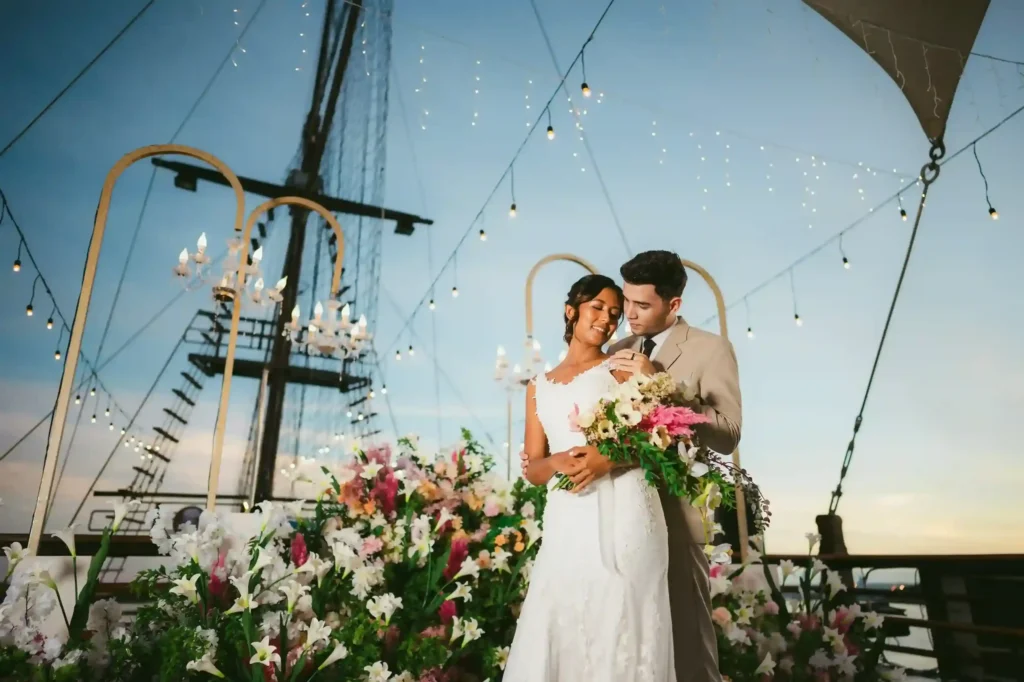
Although mixed marriages offer valuable experiences, the process can be complicated if not well-prepared. Here are some tips to help ease the process:
- Prepare All Documents Carefully
Ensure that you and your partner prepare all the required documents, such as ID cards, birth certificates, and a certificate of single status for WNI, as well as passports, visas, marriage permission from the embassy, and religious certificates for WNA. All documents must be complete and verified for smooth registration. - Understand Rights and Responsibilities
Before marrying, make sure you understand your rights and responsibilities in a mixed marriage, such as inheritance, child custody, and your child’s citizenship. This will prevent legal confusion down the line. - Seek the Right Legal Assistance
If there’s anything unclear, it’s advisable to consult a lawyer or notary experienced in mixed marriages. Family law services in Bali can help explain the rights and responsibilities you need to know and offer legal advice tailored to your situation. - Good Communication
Communication is key in a mixed marriage. Differences in religion, culture, and nationality can create challenges, so it’s important to talk openly and address potential issues. Good communication will help you overcome these differences easily. - Use Relocation Services to Bali
For foreign couples planning to move to Bali after marriage, relocation services can be incredibly helpful. These services assist with visa arrangements, work permits, and provide guidance on Bali’s legal and social systems. This makes it easier for foreign partners to settle in Indonesia and avoid administrative hurdles.
Read more: Family Reunion Visa in Indonesia: Requirements and Application Procedures You Need to Know
Solve Mixed Marriage Issues with Bali Premium Trip!
Understanding the procedures and requirements for mixed marriages in Indonesia is essential for a smooth and legally valid marriage. Both WNI and WNA partners must ensure that they fulfill various document and administrative requirements, such as identity verification, marriage permission from the embassy, and understanding their rights and responsibilities. Knowing these factors will help avoid legal and administrative issues that can hinder the marriage process.
To ensure everything runs smoothly, Bali Premium Trip offers family law services to help you and your partner understand your rights, responsibilities, and the legal process for mixed marriages. If you plan to move to Bali after your marriage, we also provide relocation services to assist you with your move, including visa processing, residence permits, and all the necessary documents for settling in Bali. With our services, you can adapt more easily and avoid administrative difficulties.
Don’t let legal issues or relocation obstacles stand in the way of your new life journey. Contact Bali Premium Trip now for comprehensive assistance and guidance in managing mixed marriages and relocating to Bali!

Related Article
What Are the Things to Consider When Traveling to Bali During Ramadan?
Many people ask whether traveling to Bali during Ramadan will...
Many people ask whether traveling to Bali during Ramadan will still feel comfortable, and the answer is yes. You can...
9 Tips for Traveling to Bali During Nyepi Celebration You Need to Know!
Bali is known as a destination that always feels alive,...
Bali is known as a destination that always feels alive, with busy beaches, roads that stay active from morning until...
10 Interesting Facts About Nyepi Day in Bali You Should Know
Nyepi Day is one of the most unique and meaningful...
Nyepi Day is one of the most unique and meaningful celebrations in Bali. Every year, the Hindu community in Bali...



